
Walter Koroshetz, MD, director of the National Institutes of Neurological Disorders and Stroke at the NIH, provided perspective on the advances in migraine treatment, and the next steps in research needed over the coming years.

Walter Koroshetz, MD, director of the National Institutes of Neurological Disorders and Stroke at the NIH, provided perspective on the advances in migraine treatment, and the next steps in research needed over the coming years.
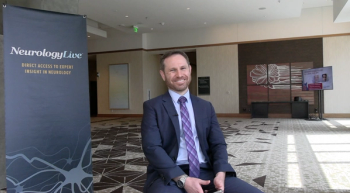
The pain management specialist and headache neurologist at the University of California San Diego Center for Pain Medicine provided perspective on how cannabis may be used in the management of migraine as more evidence is uncovered. [WATCH TIME: 3 minutes]

Data showed similar rates of discontinuation because of adverse events between those with and without CGRP monoclonal antibodies, as well as no serious AEs observed for those on concomitant medication.
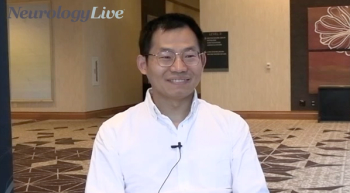
The postdoctoral researcher at Harvard Medical School discussed the relationship between sensory neurons and the neuropeptide CGRP in regulating gut immunity. [WATCH TIME: 6 minutes]

The use of intravenous ketamine in pediatric patients with refractory headaches resulted in a median pain reduction of 50% at discharge and nearly two-third of patients did not need further rescue therapies 1 month posttreatment.
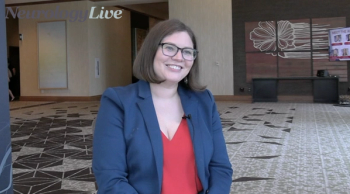
The associate professor at Yeshiva University and Albert Einstein College of Medicine discussed the significance of recognizing the behavioral aspects of migraine management such as lifestyle choices, medical interventions, and societal influences. [WATCH TIME: 4 minutes]

Here's some of what is coming soon to NeurologyLive® this week.
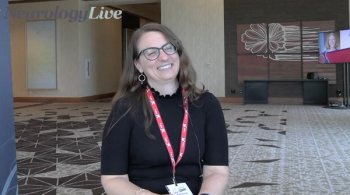
The headache specialist at the Hartford Healthcare Headache Center discussed a study that explored changes in the vasculature and retinal blood perfusion of the eye during migraine attacks. [WATCH TIME: 5 minutes]

Compared with the overall population, outcomes for the coprimary end points of pain freedom and freedom from most bothersome symptom at 2 hours postdose remained superior in rimegepant-treated individuals.
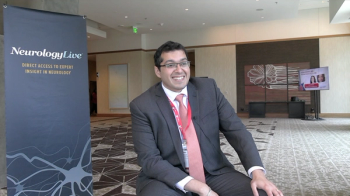
The director of the Neuroinformatics Program at the University of California, Irvine, provided insight on the use of self-organizing maps to cluster different groups of patients with migraine. [WATCH TIME: 4 minutes]

Atogepant 60 mg once daily group had significantly larger reductions in mean monthly migraine days across weeks 1-12 and weeks 9-12, with no statistical difference in treatment-emergent adverse events or all-cause discontinuation.

Test your neurology knowledge with NeurologyLive®'s weekly quiz series, featuring questions on a variety of clinical and historical neurology topics. This week's topic is the history of the American Headache Society.
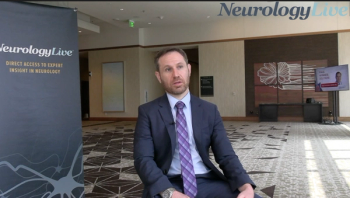
The pain management specialist and headache neurologist at the University of California San Diego Center for Pain Medicine discussed promising findings from a placebo-controlled trial assessing cannabis in patients with migraine. [WATCH TIME: 5 minutes]

Elizabeth K. Seng, PhD, associate professor at Yeshiva University and Albert Einstein College of Medicine, talked about migraine management through the lens of behavioral factors that clinicians can recommend and encourage to their patients.
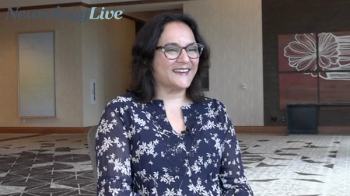
The associate professor of psychiatry at the University of Illinois at Chicago discussed the various working groups that have been formed to determine the priorities for different topics in migraine at the 2023 AHS Annual Meeting. [WATCH TIME: 5 minutes]

Allison Verhaak, PhD, a clinical psychologist from Ayer Neuroscience Institute at Hartford Healthcare Headache Center, discussed focus group and survey data on themes in migraine-related stigma, and the importance of creating a migraine specific stigma scale.
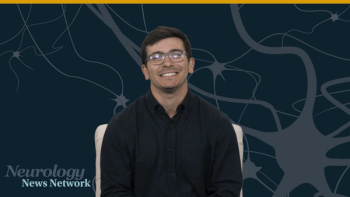
Neurology News Network for the week ending June 17, 2023. [WATCH TIME: 3 minutes]

A retrospective cohort study observed no significant difference in the number of patients who discontinued concurrent peripheral nerve blocks and onabotulinumtoxinA, which the authors recognized as a marker of clinical relevance.

Demographic factors of male sex, non-White race, and having a primary language other than English were associated with a lower odds of being diagnosed with migraine.

Patients on candesartan saw statistically significant reductions in the mean frequency of monthly headache days, including moderate to severe headache days.

When comparing galcanezumab, fremanezumab, and erenumab, 3 FDA-approved CGRP medications for preventive migraine, time to switch was lowest for erenumab and similar for galcanezumab and fremanezumab.

Mind Moments®, a podcast from NeurologyLive®, brings you an exclusive interview with Ann Marie Morse, DO, FAAN. [LISTEN TIME: 20 minutes]

New data announced by Clene Nanomedicine suggested that the gold nanocrystal therapy reduced plasma neurofilament light chain, which principal investigator Merit Cudkowicz, MD, said, “help advance the design of a phase 3 trial.”

Investigators concluded that the increased prevalence of medication-overuse headache might be because of the lack of understanding about the condition in both providers and patients with migraine.

The chief of headache at UT Austin Dell Children’s Hospital provided insight on a new series designed to deliver longitudinal comprehensive pediatric headache education. [WATCH TIME: 3 minutes]

The assistant professor of occupational therapy at the New York Institute of Technology talked about educating patients with Parkinson disease about the importance of maintaining social participation for cognitive function at ATMRD 2023. [WATCH TIME: 5 minutes]

Findings from a subgroup analysis investigating kinetic oscillation stimulation showed that the treatment potential might be an effective and safe option for preventing chronic migraine.
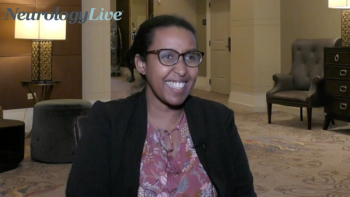
The nurse practitioner in the movement disorder division at Georgetown University Hospital discussed differences in available therapies for movement disorders versus multiple sclerosis and using a chronic care management model in Parkinson disease. [WATCH TIME: 5 minutes]

A reduction in microglial activation was observed on the PET scans of most patients included. A phase 2 trial of the therapy was announced earlier this year and is still on track to begin sometime in the fall of 2023.

Patients with Parkinson disease who were inpatients had significant impacts on their length of stay, readmissions, and morbidity after hospitalization when administered contraindicated medications.